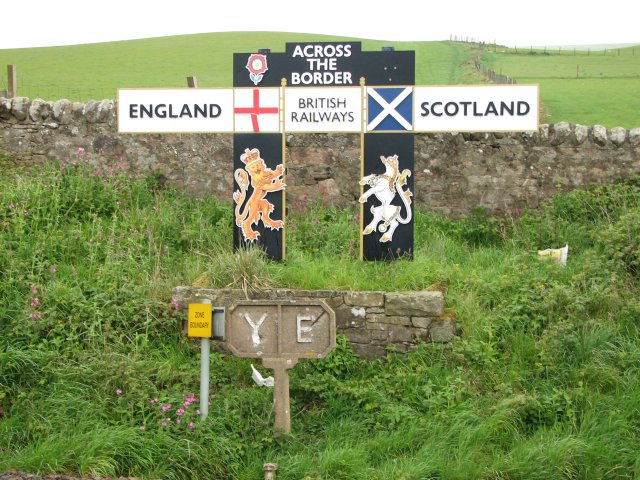As it is known, Scotland showed itself pro-European in the recent plebiscite, while most of the UK prefer leaving the EU.
This resulted in calls to hold a new referendum on the independence of Scotland, which seems reasonable for many. Why Scotland should leave the EU because of England? We can say with certainty that the majority of Scots support independence today.
However, if Scotland wants to independently join the European Union, it has to persuade all the other members of the association give the green light. And that’s not so simple
A country like Spain, for many years struggling with their own separatists (Catalans and Basques), would try to block the move. In this case, Scotland, a home for approximately 5.5 million people, or 8% of the UK population, could be independent but not a EU’s member. It is evident that this scenario is not going to work.
On the other hand, could it be possible if voting for Scottish independence became a vote to join the EU?
The Economist offers the following scenario: David Cameron, aired on June 24 his retirement in the next 2-3 months, announced holding of a referendum on Scottish independence on the eve of his departure. Many people accept take it without objections.
Here comes the key point. Instead of the Scottish people voted for independence from Great Britain, the referendum is positioned in such a way that the British people (non-Scottish) voted for independence from Britain.
In other words, if non-Scottish support "Scottish independence", then Wales and England become independent from the United Kingdom. In this case, the United Kingdom would consist of only one region, Scotland. Then, Scotland will remain within the EU.
This script has several advantages. Firstly, in case of "yes"-victory in the referendum, Scotland becomes independent from the rest of the UK, and does not come out of the European Union at the same time.
In addition, it would satisfythe desire of England and Wales to leave the EU, as the independent country (England/Wales) will no longer be part of the European Union. A similar situation would arise if Scotland voted for independence in 2014.
This scenario, however, has some explicit barriers. Cameron may not have enough political authority to declare a new plebiscite. The idea of the UK’s collapse is not very popular in England and Wales: they can vote for maintaining membership in the United Kingdom, thus rejecting the Scottish independence (but in this case, England and Wales would stay in the EU).
Meanwhile, many people are likely to support the idea of holding a new referendum on Scottish independence. Such a plebiscite would be fair for both Scotland and England/ Wales, allowing both sides to eventually get what they wanted.
source: economist.com
This resulted in calls to hold a new referendum on the independence of Scotland, which seems reasonable for many. Why Scotland should leave the EU because of England? We can say with certainty that the majority of Scots support independence today.
However, if Scotland wants to independently join the European Union, it has to persuade all the other members of the association give the green light. And that’s not so simple
A country like Spain, for many years struggling with their own separatists (Catalans and Basques), would try to block the move. In this case, Scotland, a home for approximately 5.5 million people, or 8% of the UK population, could be independent but not a EU’s member. It is evident that this scenario is not going to work.
On the other hand, could it be possible if voting for Scottish independence became a vote to join the EU?
The Economist offers the following scenario: David Cameron, aired on June 24 his retirement in the next 2-3 months, announced holding of a referendum on Scottish independence on the eve of his departure. Many people accept take it without objections.
Here comes the key point. Instead of the Scottish people voted for independence from Great Britain, the referendum is positioned in such a way that the British people (non-Scottish) voted for independence from Britain.
In other words, if non-Scottish support "Scottish independence", then Wales and England become independent from the United Kingdom. In this case, the United Kingdom would consist of only one region, Scotland. Then, Scotland will remain within the EU.
This script has several advantages. Firstly, in case of "yes"-victory in the referendum, Scotland becomes independent from the rest of the UK, and does not come out of the European Union at the same time.
In addition, it would satisfythe desire of England and Wales to leave the EU, as the independent country (England/Wales) will no longer be part of the European Union. A similar situation would arise if Scotland voted for independence in 2014.
This scenario, however, has some explicit barriers. Cameron may not have enough political authority to declare a new plebiscite. The idea of the UK’s collapse is not very popular in England and Wales: they can vote for maintaining membership in the United Kingdom, thus rejecting the Scottish independence (but in this case, England and Wales would stay in the EU).
Meanwhile, many people are likely to support the idea of holding a new referendum on Scottish independence. Such a plebiscite would be fair for both Scotland and England/ Wales, allowing both sides to eventually get what they wanted.
source: economist.com





